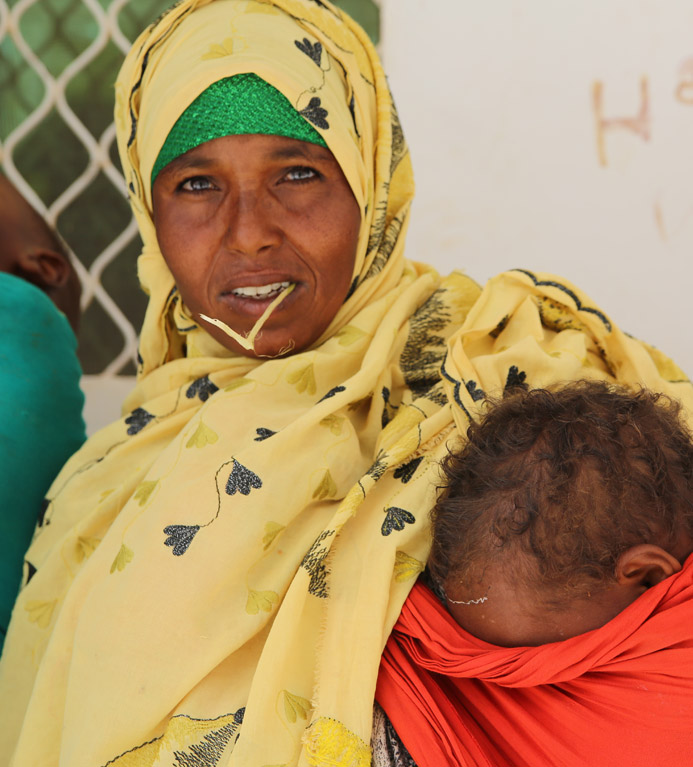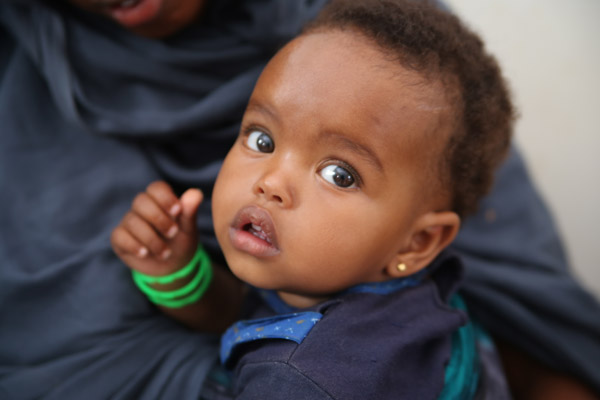Health and well-being for every individual is an essential component of Sustainable Development Goal (SDG) 3. WHO provides technical, policy, and advisory support to enhance the scope and functionality of Somalia’s primary health care (PHC) systems in order to support better health and well-being for all. (PHC refers to health care provided in the community through local health facilities, community health workers, and local medical professionals.
One out of 12 women die from pregnancy-related causes and 1 out of 7 children die before their fifth birthday.
Midwifery is the cornerstone of Somalia’s reproductive, maternal, newborn, child, and adolescent health provision. WHO is working closely with national health authorities to implement Somalia’s Integrated Reproductive, Maternal, Neonatal, Child and Adolescent Health Strategy 2019‒2023, and National Midwifery Strategy 2018–2023.
WHO also supports implementation of the Political Declaration of the United Nations General Assembly on the Prevention and Control of Noncommunicable Diseases (NCDs). NCDs include cardiovascular disease, stroke, cancer, diabetes, chronic respiratory diseases, and mental health disorders.
Mental health and substance abuse care in Somalia is neglected and underfunded, and poor understanding results in the isolation and stigmatization of the mentally ill and the use of dangerous and humiliating treatment practices. A mental health strategy has been developed that will incorporate mental health care into primary health care services in order to treat, rehabilitate, and care for people with mental illnesses using sound medical practices. A national action plan is also being developed to combat antimicrobial resistance, a global cause of concern.
WHO is working to promote collective, multisectoral and integrated efforts to treat and prevent malnutrition. To improve health and well-being and reduce health risks in the community WHO encourages health promotion and rights literacy, people participation and community empowerment.
Health and well-being for every individual is an essential component of Sustainable Development Goal (SDG) 3. WHO provides technical, policy, and advisory support to enhance the scope and functionality of Somalia’s primary health care (PHC) systems in order to support better health and well-being for all. (PHC refers to health care provided in the community through local health facilities, community health workers, and local medical professionals.
One out of 12 women die from pregnancy-related causes and 1 out of 7 children die before their fifth birthday.
Midwifery is the cornerstone of Somalia’s reproductive, maternal, newborn, child, and adolescent health provision. WHO is working closely with national health authorities to implement Somalia’s Integrated Reproductive, Maternal, Neonatal, Child and Adolescent Health Strategy 2019‒2023, and National Midwifery Strategy 2018–2023.
WHO also supports implementation of the Political Declaration of the United Nations General Assembly on the Prevention and Control of Noncommunicable Diseases (NCDs). NCDs include cardiovascular disease, stroke, cancer, diabetes, chronic respiratory diseases, and mental health disorders.
Mental health and substance abuse care in Somalia is neglected and underfunded, and poor understanding results in the isolation and stigmatization of the mentally ill and the use of dangerous and humiliating treatment practices. A mental health strategy has been developed that will incorporate mental health care into primary health care services in order to treat, rehabilitate, and care for people with mental illnesses using sound medical practices. A national action plan is also being developed to combat antimicrobial resistance, a global cause of concern.
WHO is working to promote collective, multisectoral and integrated efforts to treat and prevent malnutrition. To improve health and well-being and reduce health risks in the community WHO encourages health promotion and rights literacy, people participation and community empowerment.











